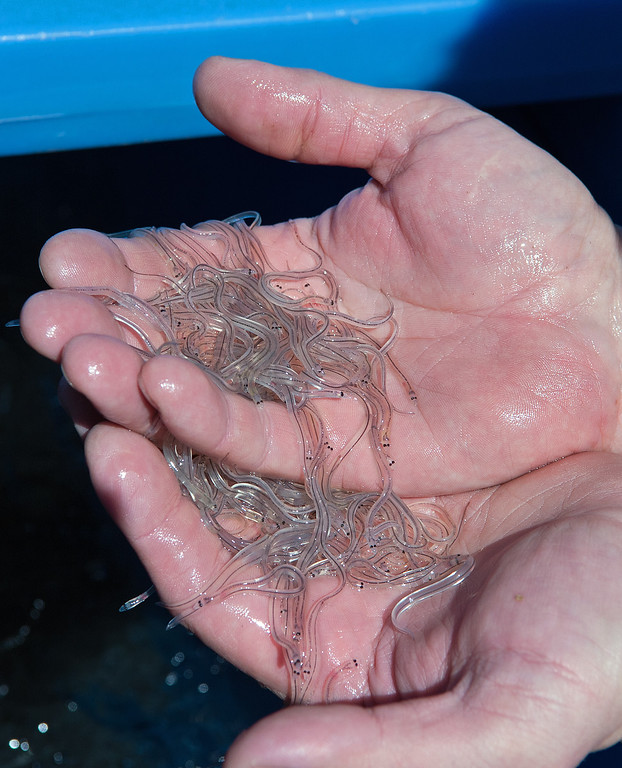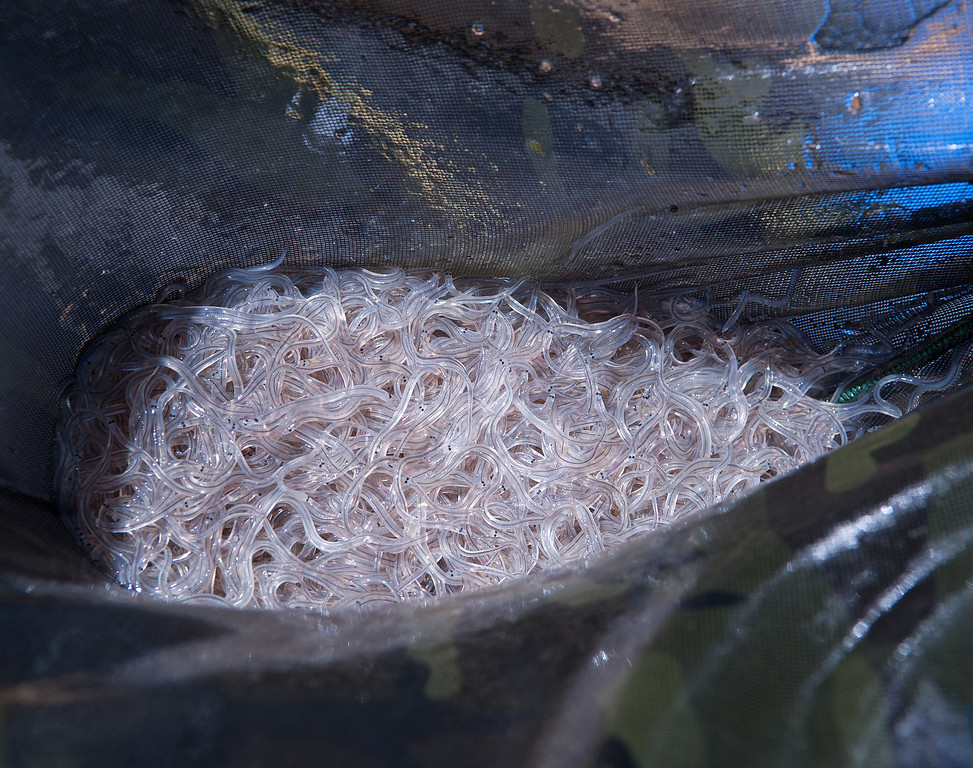For some people here, the arrival of flocks of adult Robins on lawns and fields is the harbinger of spring; for others, it’s the swarm of baby eels at the mouths of our rivers and streams. The annual arrival of the strange and valuable babies (Elvers) of American Eels (Aguilla rostrate) has begun. Their long and dangerous trip to become residents has just one final major obstacle: walls of nets to capture them, including these at the mouth of Patten Stream yesterday:
Maine’s fishing season for those lucky enough to get an Elver license is March 22 through June 7. Fyke (“Fick”) Nets seem to be the preferred fishing equipment for them here. These nets are large, fine-mesh funnel traps that end in a cylindrical netting bag that contains cones that make it easier for the fry to enter than to exit.
These babies actually are cute in an eely way – they’re transparent (except for their eyes and spinal cords), which is why they’re also called “Glass Eels.”
Most of the trapped Elvers are air-shipped in special containers to Asia, where they’re raised to nontransparent adulthood and then sold as delicacies. The price paid here to fishermen by Elver dealers during the first week of the season ranged between $2,700.00 and $2,800.00 per pound, according to government reports. That price should decrease as the number of migrating eels increases daily.
Part of their high value is due to their miraculous lifestyle. American Eels spend 8 to 25 years growing up in brackish or fresh water, where they are a favored food for many predators.
When they feel ready (no one seems to know how that happens), they swim down into the ocean and out to the Sargasso Sea south of Bermuda. After spawning there, the adults die.
Their eggs become larva that drift into the Gulf Stream and transform into the little glass eels that migrate in the winter and spring back to the fresh or brackish waters in which their parents grew up. (We haven't seen an adequate explanation for that trip, either.) Most of them will avoid being caught by fishermen, especially at high tide when some of the nets -- even the floats -- are submerged.
(Surry, Maine)






